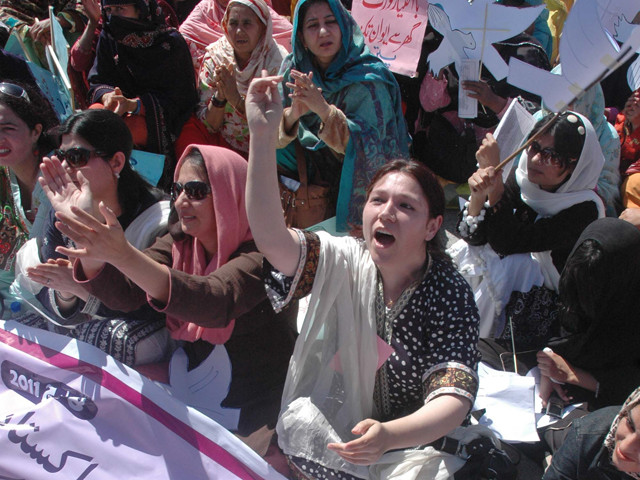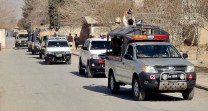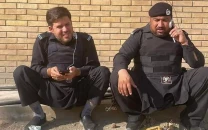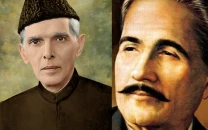Fighting for their rights: Women come out on roads, present charter of demands
A large numbers of women come on the roads to make their voices heard.

A large numbers of women came on the roads on Tuesday to make their voices heard.
Insani Haqooq Itehad, a network of civil society organisations, started its journey from Kulsoom Plaza to Parade Chowk in the form of a rally led by well-known women right activists, including Farzana Bari, Rehana Hashmi, Rabia Hadi, Sarwar Bari, Naushaba Arif and Nasreen zhar.
The participants carried “doves of peace” and raised slogans such as: Kesa chahiye Pakistan - barabar hon jahan sabh insane; Hum aman phelaney nikle hain - Aao humare saath chalo.
The activists presented a Women’s Charter of Demands on the occasion, which addresses various socio-economic and political issues that the women of Pakistan are suffering from.
The charter also demanded the separation of religion from state functions, gender equality, balance between administration and justice systems, freedom of the press, establishment of cultural and educational institutions, provincial autonomy, agricultural reforms, banning weapons and keeping the borders peaceful.
Post-flood circumstances of women farmers
In a press briefing organised by ActionAid on Tuesday, women peasants said their lives had become tougher after the floods.
They claimed that the land allotted to them after the flood was of little use. They were paid meagre wages by their landlords, even though they worked throughout the day.
“We are paid Rs1 on picking 3 kilograms of lady-fingers,” revealed Sultana. She said that women were even forbidden from using animals for transport in her area.
Bahar claimed that the landlords in her area forbid girls from getting an education, fearing that the girls would “escape the four walls of their houses.”
“However, they do not have an objection when the women work on their lands,” she added.
“Of all human rights abuses, violence against women is the most systematic and accepted, often considered ‘normal’ in many places. This is unacceptable,” said ActionAid Country Director Jemal Ahmed.
Published in The Express Tribune, March 9th, 2011.



















COMMENTS
Comments are moderated and generally will be posted if they are on-topic and not abusive.
For more information, please see our Comments FAQ